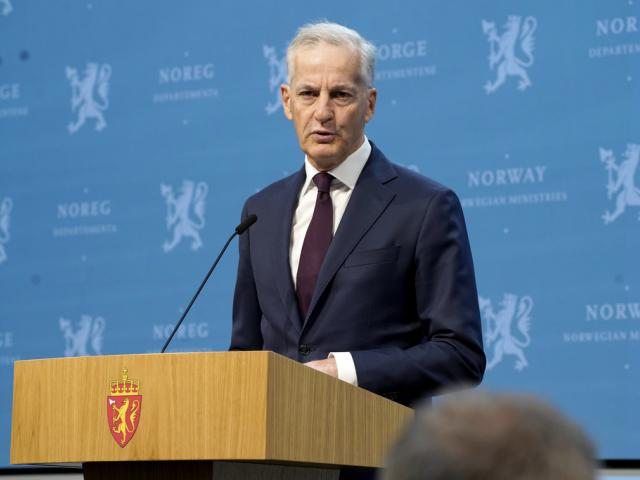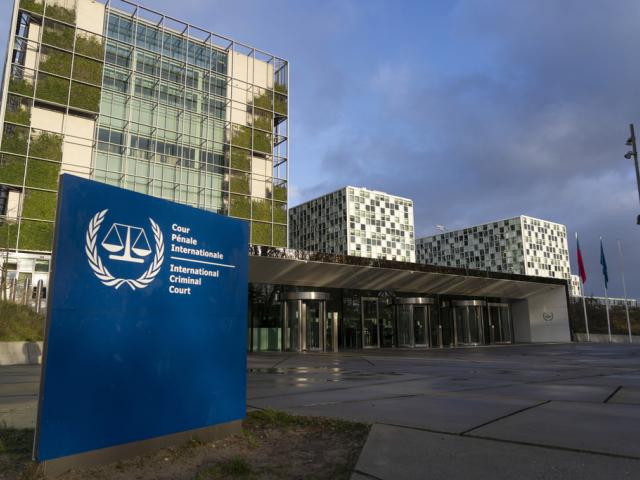A possible case of Ebola is being investigated at Howard University Hospital in Washington D.C., according to The Hill newspaper and local news media.
A hospital spokesperson told The Hill that a patient was admitted who was exhibiting symptoms similar to Ebola. The individual reportedly traveled to Nigeria and is said to be in stable condition.
Meanwhile in Dallas, a hazardous-materials crew arrived Friday at an apartment where Thomas Eric Duncan, the first confirmed U.S. Ebola, patient stayed. They collected bed sheets and towels used by the infected man before he was hospitalized.
The family living in the apartment has been confined to their home under armed guard while public-health officials monitor them - part of an intense effort to contain the deadly disease before it can get a foothold in the United States.
Louise Troh, who shares the apartment with her 13-year-old son and two nephews, said she is tired of being quarantined and wants authorities to decontaminate her home.
"Who wants to be locked up?" she said Thursday. Private security guards and sheriff's deputies have blocked the entrance to the 300-unit apartment complex.
Elsewhere, NBC News reported that an American freelance cameraman working for the network in Liberia has tested positive for the virus and will be flown back to the United States, along with the rest of the news crew.
A cleanup crew hired by the county and state paid an initial visit to the apartment Thursday evening to assess the job. They returned around midday Friday to complete the work, which was expected to take about three hours.
The family living there will be allowed to remain in the apartment during the cleaning. Earlier, officials had said they would have to be moved.
Items from both the apartment and from the hospital where Duncan is being treated will be placed in secure containers and removed for disposal.
The first Ebola diagnosis in the nation has raised concerns about whether the disease that has killed 3,300 people in West Africa could spread in the U.S. But federal health officials say they are confident they can keep it in check.
The confinement order, which also bans visitors, was imposed after Duncan's family failed to comply with a request to stay home, according to Dallas County Judge Clay Jenkins.
A Big 'Spider Web'
Meanwhile, Texas health officials expanded their efforts to contain the virus, reaching out to as many as 100 people who may have had direct contact with Duncan or someone close to him.
None has shown symptoms, but they have been told to notify medical workers if they begin to feel ill, said Erikka Neroes, a spokeswoman for the Dallas County Health and Human Services agency.
The at-risk group includes 12 to 18 people who had direct contact with the infected man, including an ambulance crew and a handful of school children. The others came into contact with that core group, she said.
"This is a big spider web" of people, Neroes said.
The virus that causes Ebola is not airborne and can only be spread through direct contact with the bodily fluids - blood, sweat, vomit, feces, urine, saliva or semen - of an infected person who is showing symptoms. Those fluids must also have an entry point.
For example, people might get infected by handling soiled clothing or bed sheets and then touching their mouth, or if they are not wearing gloves while doing those tasks and have a cut on their hand.
Duncan's neighbors in the Liberian capital believe he became infected when he helped a sick pregnant neighbor a few weeks ago. It was not clear if he had learned of the woman's diagnosis before traveling.
Nonetheless, Liberian authorities announced plans to prosecute Duncan when he returns, accusing him of lying about not having any contact with an infected person.
Duncan filled out a form Sept. 19 about his health and activities before leaving for Dallas. Among other questions, the form asked whether Duncan had cared for an Ebola patient or touched the body of anyone who had died in an area affected by Ebola. He answered no to all the questions.
Blocking Travel 'Would Backfire'
CDC Director Tom Frieden dismissed suggestions that people traveling from West Africa should not be allowed into the U.S.
"The fact is that if we tried to seal the border, it would not work because people are allowed to travel," he said Friday on ABC's "Good Morning America." Blocking travel, he said, "would backfire because it would make it harder to stop the outbreak."
Duncan arrived in Dallas on Sept. 20 and fell ill a few days later. An emergency room sent Duncan home last week, even though he told a nurse he had been in West Africa.
In a statement issued late Thursday, Texas Health Presbyterian Hospital said it followed communicable disease protocols by asking Duncan if he had come into contact with anyone who was ill. He replied that he had not.
Hospital spokesman Wendell Watson explained that a flaw in the electronic health records systems led to separate physician and nursing workflows, meaning the travel history documented by nurses was not passed onto physicians. He said the system has been corrected.
Duncan's symptoms included a 100.1 F temperature, abdominal pain, a headache and decreased urination, the hospital said. He said he had no nausea, vomiting or diarrhea. Based on that, the hospital decided to release him.
He returned two days later and has been kept in isolation since Sunday. Duncan was listed Thursday in serious but stable condition.
Did you know?
God is everywhere—even in the news. That’s why we view every news story through the lens of faith. We are committed to delivering quality independent Christian journalism you can trust. But it takes a lot of hard work, time, and money to do what we do. Help us continue to be a voice for truth in the media by supporting CBN News for as little as $1.










 Support CBN News
Support CBN News







